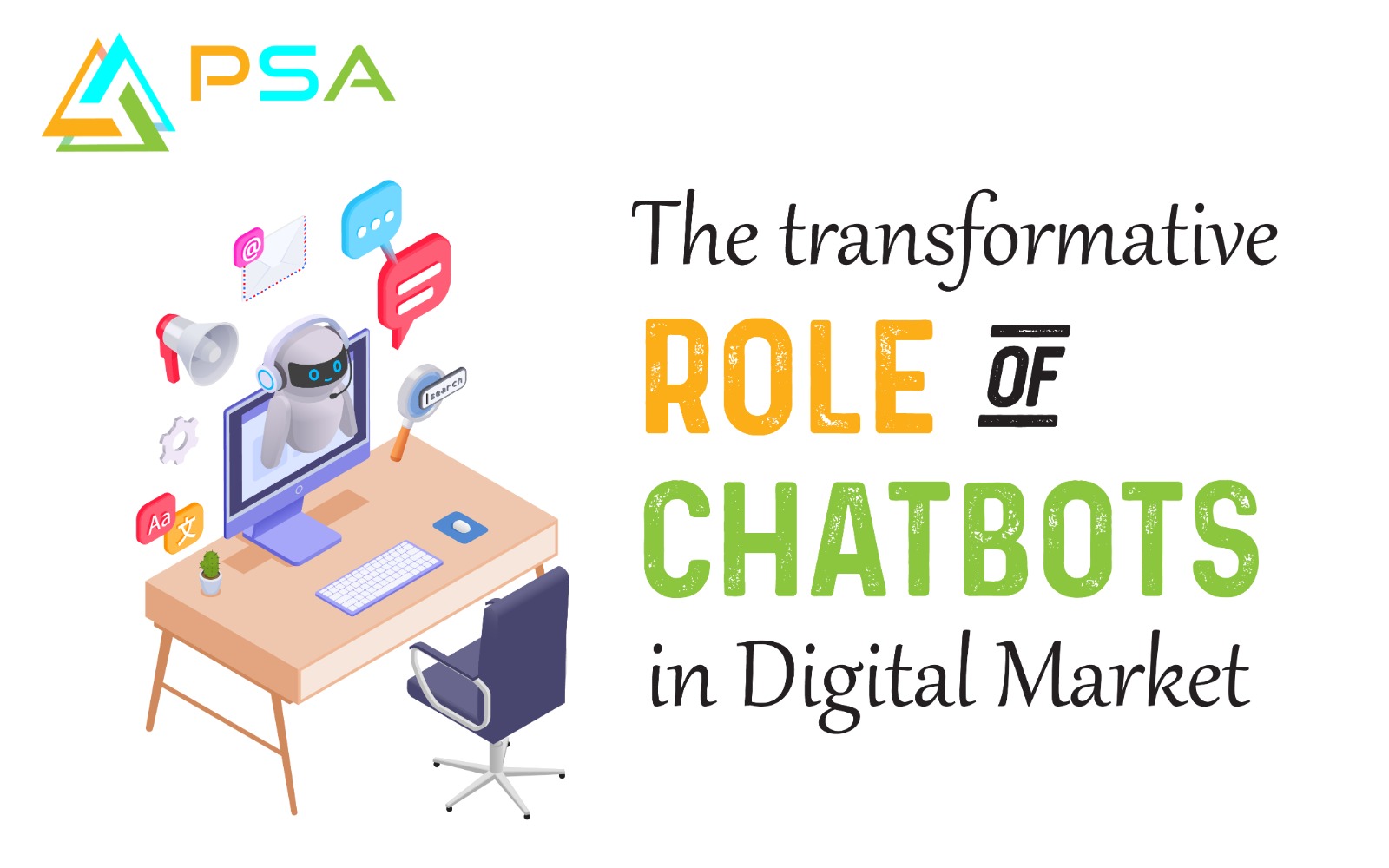The digital landscape has evolved rapidly, transforming the way businesses engage with their customers. Chatbots, once seen as simple conversational agents, have now become indispensable tools in the realm of digital marketing. These artificial intelligence-powered virtual assistants are revolutionizing customer interactions, streamlining processes, and enhancing user experiences across various industries. In this article, we explore the transformative role of chatbots in digital marketing and how they are reshaping the future of customer engagement.
- Personalized Customer Interactions
One of the primary reasons chatbots have gained prominence in digital marketing is their ability to deliver personalized customer interactions. By analyzing user behavior and past interactions, chatbots can tailor responses and recommendations to meet individual needs. This level of personalization fosters a deeper connection between businesses and their customers, ultimately leading to increased customer loyalty and retention.
- 24/7 Availability
Unlike human agents who have limitations in terms of working hours, chatbots operate 24/7 without any breaks. This round-the-clock availability enables businesses to cater to a global audience regardless of time zones. By promptly addressing customer queries, chatbots significantly reduce response times, which is crucial in today’s fast-paced digital world where instant gratification is expected.
- Enhanced User Experience
User experience is a critical aspect of any successful digital marketing strategy. Chatbots contribute significantly to enhancing the user experience by offering quick and efficient solutions to user queries. With their conversational interfaces, chatbots create a more engaging and interactive experience, making the customer feel valued and understood.
- Lead Generation and Qualification
Chatbots are powerful tools for lead generation and qualification. By engaging users in real-time conversations, chatbots can collect valuable data, such as contact information and preferences, which can be used to segment and qualify potential leads. These qualified leads can then be passed on to human agents for further nurturing and conversion.
- Seamless Customer Support
The role of chatbots in customer support cannot be overstated. They can handle a wide range of support inquiries, from simple frequently asked questions to more complex issues. By providing immediate responses and solutions, chatbots alleviate the burden on human support agents, allowing them to focus on more intricate problems that require a personal touch.
- E-commerce and Product Recommendations
In the e-commerce industry, chatbots are employed to offer personalized product recommendations based on user preferences and browsing history. By analyzing user behavior, chatbots can suggest products that align with the customer’s interests, leading to increased sales and revenue for businesses.
- Surveys and Customer Feedback
Chatbots are effective tools for conducting surveys and gathering customer feedback. By integrating survey questions into the conversation flow, businesses can obtain valuable insights into customer satisfaction, pain points, and preferences. This data can then be used to refine marketing strategies and improve overall business operations.
- Data Analytics and Insights
As chatbots interact with users, they collect vast amounts of data. This data can be analyzed to gain valuable insights into customer behavior, preferences, and pain points. Businesses can leverage this information to make data-driven decisions, refine marketing campaigns, and optimize their overall digital marketing efforts.
Chatbots have emerged as indispensable assets in the realm of digital marketing. Their ability to provide personalized interactions, round-the-clock availability, enhanced user experience, and efficient customer support has reshaped the way businesses engage with their audiences. From lead generation to e-commerce recommendations, chatbots play a transformative role in driving customer engagement and optimizing marketing strategies. As AI technology continues to advance, chatbots will undoubtedly play an even more significant role in shaping the future of digital marketing. Embracing chatbot technology is not only a competitive advantage but also a crucial step towards creating a more customer-centric and efficient digital ecosystem.

